| Reviews & Columns |
|
Reviews DVD TV on DVD Blu-ray 4K UHD International DVDs In Theaters Reviews by Studio Video Games Features Collector Series DVDs Easter Egg Database Interviews DVD Talk Radio Feature Articles Columns Anime Talk DVD Savant Horror DVDs The M.O.D. Squad Art House HD Talk Silent DVD
|
DVD Talk Forum |
|
|
| Resources |
|
DVD Price Search Customer Service #'s RCE Info Links |
|
Columns
|
|
|
Up Series, The
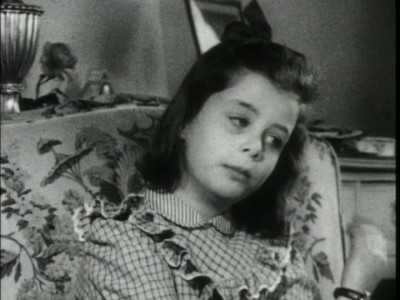
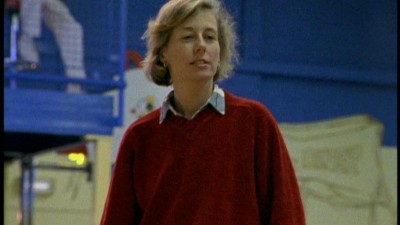
In 2006, upon the release of Michael Apted's documentary 49 Up, the late, beloved critic Roger Ebert, during an interview with the filmmaker (included in the extras on the collection reviewed here), called Apted's The Up Series of docs "the most noble use of film that I've been able to witness as a filmgoer." That's an impossible claim to quantify, of course, and Ebert being Ebert, "noble" means, specifically, warmly humanistic and individualist. But the revisit to Apted's series -- which began as a half-hour sociological documentary about an economically diverse group of British seven-year-olds with 1964's 7 Up and evolved tremendously in thematic focus, scope, and length over each subsequent installment, which catches up with the kids at the ages of 14, 21, 28, 35, 42, 49, and, most recently, 56 -- afforded by First Run Features' box set compiling all of the films demonstrates exactly what Ebert meant and makes it hard to quibble. The term "human interest story" has become synonymous with those soft-news segments on local TV that are glib and pointless at best (and exploitative at worst), but the Up films -- automatically riveting to anyone who's ever pondered the passing of time and the inevitable drama of changes and developments it brings to any life story, no matter how "ordinary" -- could be so described as a sincere compliment; its interest in the human lives of its subjects has a depth and commitment to it that grows exponentially every seven years, when those who've fallen in love with these snapshots eagerly tune in (in the UK, where the films are made and shown under public-television auspices) or head to the cinema (in the U.S., at least) to be reunited and catch up with those seven-year-olds Apted selected back in '64.
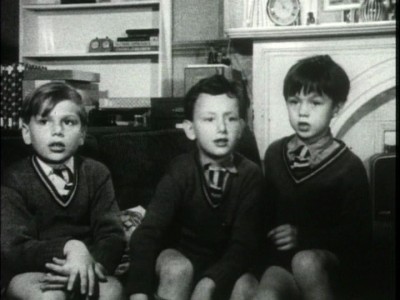
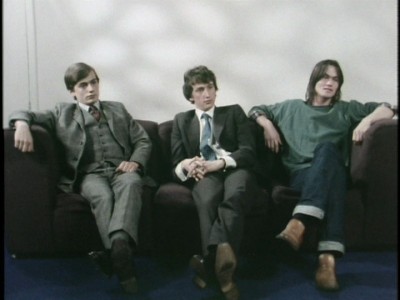
The original idea, it's obvious from both 7-Up and its sequel, 7 Plus 7 (and less and less obvious subsequently), was to see how class differences (more open, obvious, and less easy to ignore or minimize in England than the ones we Americans sometimes like to pretend don't exist among us) played out in the actual life trajectory, experience, choices (or lack thereof), ambitions, feelings, and opinions of people from various social strata, starting at a very early age; each installment reminds us at some point of the series' touchstone quote from the Jesuit saint Francis Xavier Dolan: "Give me a child at age seven, and I'll give you the man." The enlisted subjects for what would become Apted's lifetime-spanning documentary test of Dolan's hypothesis were, briefly and in no special order (the order in which they appear in each successive film changes, anyway) are: From the upper classes, Suzy, a little girl who goes to a private school and takes piano and ballet; and John, Andrew, and Charles, who go to a similarly posh school for boys; and Bruce, a sensitive lad who attends some sort of expensive quasi-military prep school to which he appears entirely ill-suited by temperament. From the more mid-range of the socioeconomic hierarchy, there's Neil and Peter, two happy-go-lucky Liverpudlian classmates, and Nick, a Yorkshire ruralite growing up on a farm; and, "representing" the working class (scare quotes because just how representative any of the individual subjects are of anything is something they address and sometimes challenge in later episodes), a trio of schoolgirls, Lynn, Jackie, and Sue; Tony, a rough-and-tumble East-End (at that time London's emblematic working-class neighborhood) neighbor of the three girls, and Paul and Symon, two wards of a charity home for boys.
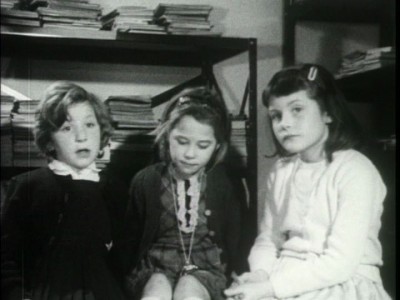
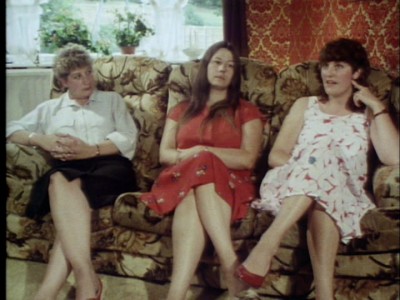
I'm not much of a believer in plot/story "spoilers" really having the power to spoil much of anything about most movies, but I'll make an exception here, as it's neither my place to recount the myriad different paths and far-flung geographical, social, and emotional destinations the children are revealed over the series to have, and nor would space allow for such a summation. Suffice it to say that the only obvious or predictable thing about these films is how unpredictable anyone's real life reveals itself to be as it unfolds, whether you're rich or poor, black or white, scholarly or athletic. The suspense is thus built into the very concept of the films, and our interest in what becomes of each individual over each seven-year period never flags (the fact that a few participants don't always participate in every installment, and some go missing for several only to return by surprise, adds significantly to this: "Will we find out this time what happened to so-and-so and what they're up to now?"). The assumed reasons for that interest complicate themselves further and further with each film, however; the unspoken (and, in this reviewer's opinion, perfectly reasonable and never entirely unfounded) assumption in 7 Up and 7 Plus 7 is that socioeconomic class will be a decisive factor in what these kids' futures will be, and although that's still as demonstrably true for them as it is for anyone, there's no way any of them or Apted could honestly claim that it is, always, the deciding factor. Perhaps a poor boy like Paul does better for himself and his future family if he happens to be moved by his father to Australia as a teen, perhaps personal difficulties and mental/physical health issues cause someone like Neil or Jackie to survive in their adult years on state benefits, or perhaps Symon's being biracial isn't considered by him to be as interesting or important a factor as Apted or any viewer of any race might presume; all of these and many more gray-area, anti-dogmatic situations arise to complicate anything politically programmatic that might have existed at the outset. In fact, the better-off people, with perhaps one or two exceptions (John, the most openly arrogant of the rich kids, is as much of a Tory/conservative as one might lazily guess, though even he has one or two soft spots and mitigating traits), surprise by often being notably more conscientious about socioeconomic disparities and injustices than stereotypical thinking would allow for.
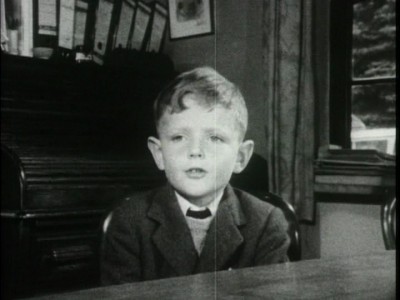
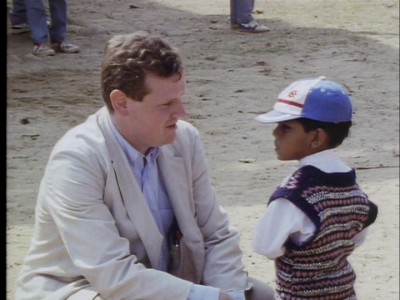
It's a result of the very quiet but actually rather tremendous conscientiousness of Apted himself that the films progressively better avoid every pitfall of such a long-range and innately socially/politically-burdened project; they only seem simple, straightforward in their accessibility and the ease with which they engage us so deeply. Apted, considered as a filmmaker in general, is less of a top-tier auteur than a reasonably skillful and smart journeyman (his sturdy-enough but highly mixed filmography also includes the '84 Sting concert film Bring On the Night, Gorillas in the Mist, Coal Miner's Daughter, and a James Bond, as well as things like Nell and Enough), and if The Up Series seems very likely to be his one unequivocal, major contribution to cinema, it's not because of any discernible Errol Morris-like innovativeness he brings to them; the style of these films is uniformly conventional, alternating talking-head-interview footage, on film in the earlier ones and later on video, of each subject at each juncture, usually at their home (occasionally mixing and matching them, as when Paul visits England with his family and reunites with Symon), with shots of them at work and/or play in their current occupation/milieu. But it's partly through his absolute, unfailing persistence with the project (not once has the seven-year mark hit without a new film), but mainly through his increasing unwillingness to impose, on his subjects or on us, the viewers, his own view of what the films mean or what they succeed or even fail at. Already, in 21 Up, some of the interviewees are pointing out how baffled they are by the films that result from Apted's visits, or even how incomplete, misleading, or shallow a portrait some of them find of themselves in what we're watching; by the time of 56 Up, it seems as though at least half have criticisms, ranging from mild to severe, of the films, comments which Apted responsibly includes and which really are an effective inoculation against any presumptuousness, falsity, or evasion of political/polemical responsibility his work might be accused of. Rather than any readily identifiable personal vision or aesthetically innovative approach, Apted's overarching achievement here is one of a punctiliously honest, even self-reflexive demarcation, within the films themselves, of their boundaries and limitations -- what they can do, what they can't, what their inevitable blind spots and omissions are -- that renders them no less addictively interesting, revealing but never pat or tidy brief glances at people in whose lives he makes it difficult not to share his demonstrably genuine, careful, respectful curiosity.
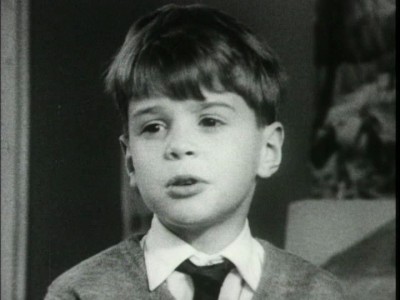
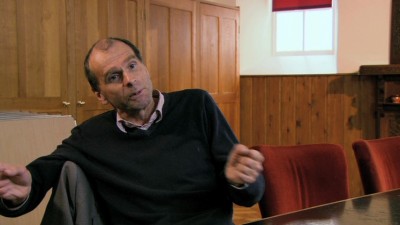
If this is still voyeurism -- which, some might convincingly say, most cinema is -- it's victimless voyeurism, carried out openly, sensitively, and with the lights on. The Up Series are "human interest" at its most humane and really truth-seeking, something quite unlike a great many such efforts. Though they are something probing and personally expository that you can't take your eyes off of, there's no car-crash rubbernecking quality to any of them; they never gives us cause to feel unkind or condescending for our fascination, which becomes so intense as they go by that it could very well find you unable to resist the next one, and the next, until you've spent (but you'll never consider it wasted) your entire day watching Suzy, John, Andrew, Charles, Bruce, Neil, Peter, Nick, Jackie, Lynn, Sue, Symon, and Paul grow from children to young men and women to middle-aged parents and grandparents before your very eyes, over the course of a mere 14 hours or so.
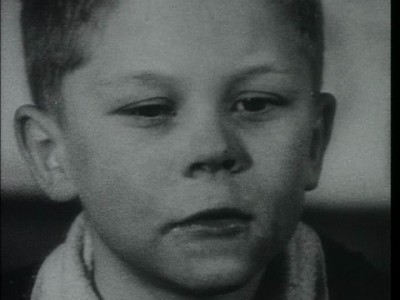
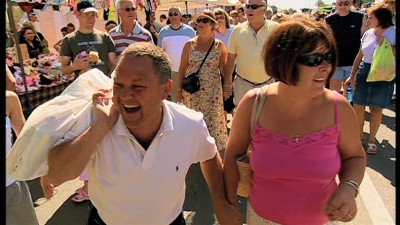
Video:
Each of the transfers in the set -- presenting the films at their original broadcast aspect ratios of 1.33:1 (through 35 Up) and then then 1.33:1 to approximately 1.85:1 (from 42 Up on) -- is of a quality that's more than fair to the source materials, which all have a naturally raw, "gritty" (when filmed, as in 7 Up through 35 Up) or flat/videotape look of varying qualities (when shot on videotape, as for 42 Up through 49 Up) that never appears less than fitting and natural to the kind of documentary films we're watching and the way they must by necessity be made. The colors and contrasts are all decently solid and vivid, and there's no mottling or pixellating of the image, with compression artifacts limited to scattered edge enhancement/haloing throughout (especially in some of the videotaped installments).
Sound:Each film's soundtrack is presented in Dolby Digital 2.0 Stereo, which works well for either the earlier films originally recorded as mono (it just dual-channels the mono sound) and the later, actually stereo-recorded films. There are no big scores or fancy sound designs, obviously (and you can actually hear the faint whirring of the film reels rolling inside the camera during some scenes of some of the earlier ones), but the aptly functional sound each of the films was made with comes through perfectly as presented here, every word completely immediate and clear, with no undue distortion, imbalance, crackle, or any other preventable audio drawbacks of any consequence.
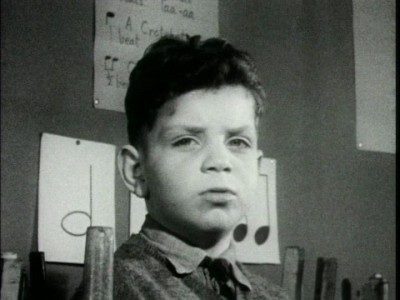
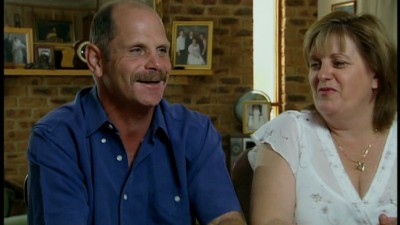
--On every disc from 7 Up through 35 Up, extras include only a photo gallery for the respective film and an onscreen-text director biography.
--42 Up also contains feature commentary with director Michael Apted, which adds fully another dimension, not only through Apted's interesting recollections of the logistics and research required for the Up project, but also through his inclusion in this context of what he couldn't include in the films themselves: personal details of his own life's and experiences' overlaps and connections with those of his subjects.
--49 Up contains the aforementioned Roger Ebert interview with director Michael Apted from 2006, a half-hour program in which Ebert asks admiring but generally perceptive and meaningful questions, answered candidly, revealingly, and in detail by Apted.
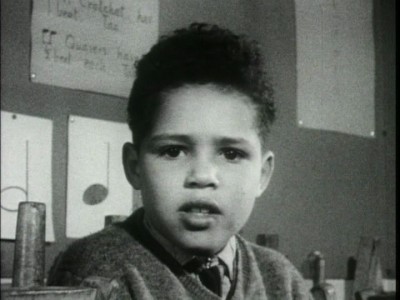
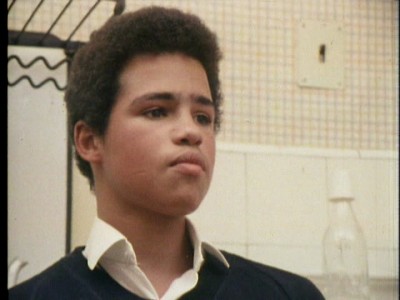
It's unlikely anyone could watch any of Michael Apted's Up series of documentaries and not want to get the entire story (so far) on its subjects, a now far-flung group of British people from varied walks of life whom Apted has revisited for a new chapter every seven years since they were children. The scratch for that inevitable itch has arrived with First Run Features' new re-release of their Up Series box set of all the films, starting from 1964's 7 Up and now including the most recent entry, 2012's 56 Up. Though they're careful not to imply that we could ever really, truly "know" its subjects from merely one new interview session at each seven-year interval, the films certainly give us a sense of intimate biographical familiarity and a certain interest in these people's lives that goes well beyond the projection/voyeurism/wish-fulfillment manner in which the majority of films assume we relate to the people onscreen, to become something like real, nonjudgmental empathy and sometimes genuine concern and affection. As the films evolve over the series, our involvement deepens, becoming ever more complex, rich, and thought-provoking as the interviewees express their feelings, worries, or dismissals over the idea of us watching their lives unfold, why, and to what purpose. Partly because it has the integrity to question itself in this way, and partly because Apted's careful conceptualization, planning, and structuring of his films make them as engrossing as they are self-aware (and ultimately at least somewhat ambivalent), they're an eminently worthy, classic staple of the documentary genre to whose popularization and diversification it has been such an eminent contributor (particularly outside of England, where the films have been released theatrically, as in the U.S.) Whether you're interested in seeing an addictive series of films that ever more deeply explores the limits of what a documentary can (or, perhaps, can't) do, or you're looking for an incredibly thoughtful and well-told story about the actually riveting trajectory of more or less ordinary-appearing lives, The Up Series is as vital, indispensable, and accessible a candidate as anything else that's been done. Highly Recommended.
|
| Popular Reviews |
| Sponsored Links |
|
|
| Sponsored Links |
|
|
| Release List | Reviews | Shop | Newsletter | Forum | DVD Giveaways | Blu-Ray | Advertise |
|
Copyright 2024 DVDTalk.com All Rights Reserved. Legal Info, Privacy Policy, Terms of Use,
Manage Preferences,
Your Privacy Choices | |||||||














